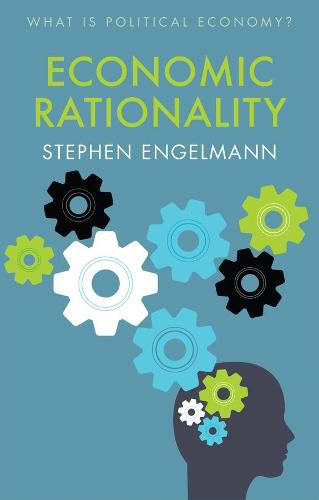Readings Newsletter
Become a Readings Member to make your shopping experience even easier.
Sign in or sign up for free!
You’re not far away from qualifying for FREE standard shipping within Australia
You’ve qualified for FREE standard shipping within Australia
The cart is loading…






Economics used to be called political economy, and the loss of the ‘political’ tracks the ascendance of the idea of rational choice within the discipline. Where does this idea of economic rationality-choosing to maximize benefits and minimize costs-come from? What are the consequences of its rise?
In this new book, Stephen Engelmann assesses these questions through a consideration of the often-hidden links between choice and government, ranging from the Benthamic utilitarianism that inspired modern economics to the contemporary economic psychologists trying to nudge everyone to choose more rationally. Multiple global crises are exposing how terribly deficient economic rationality is as a mode of government, since choice turns away from relations in the common out toward systems management and in toward better housekeeping. What once heralded a politics and ethics of egalitarian self-command and spurred democratic reform, he argues, now forecloses creative political-economic alternatives and legitimates otherwise illegitimate forms of rule.
This accessible volume will be of interest to students and scholars of politics and economics, and to general readers concerned about the various ways that psychology and management have infiltrated our politics.
$9.00 standard shipping within Australia
FREE standard shipping within Australia for orders over $100.00
Express & International shipping calculated at checkout
Stock availability can be subject to change without notice. We recommend calling the shop or contacting our online team to check availability of low stock items. Please see our Shopping Online page for more details.
Economics used to be called political economy, and the loss of the ‘political’ tracks the ascendance of the idea of rational choice within the discipline. Where does this idea of economic rationality-choosing to maximize benefits and minimize costs-come from? What are the consequences of its rise?
In this new book, Stephen Engelmann assesses these questions through a consideration of the often-hidden links between choice and government, ranging from the Benthamic utilitarianism that inspired modern economics to the contemporary economic psychologists trying to nudge everyone to choose more rationally. Multiple global crises are exposing how terribly deficient economic rationality is as a mode of government, since choice turns away from relations in the common out toward systems management and in toward better housekeeping. What once heralded a politics and ethics of egalitarian self-command and spurred democratic reform, he argues, now forecloses creative political-economic alternatives and legitimates otherwise illegitimate forms of rule.
This accessible volume will be of interest to students and scholars of politics and economics, and to general readers concerned about the various ways that psychology and management have infiltrated our politics.